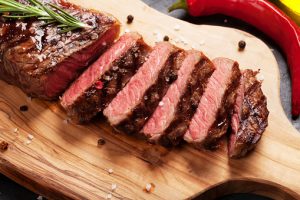 More and more people are living to 100, as advancements in medicine along with awareness of healthy lifestyle habits continue to improve. Aging is constantly being studied by experts—they want to find out why some people live longer than others and how we can have more people reaching that triple-digit age.
More and more people are living to 100, as advancements in medicine along with awareness of healthy lifestyle habits continue to improve. Aging is constantly being studied by experts—they want to find out why some people live longer than others and how we can have more people reaching that triple-digit age.
One major finding in the area of aging is that damage to DNA results in aging—the quicker the damage, the quicker the aging. There are many different things that can damage DNA, and inflammation is a big predator. So, it follows that reducing inflammation is a good way to slow down aging.
Advertisement
Inflammation can be both good and bad. It’s good because it can help healing and fight off infection. But it’s bad because if it becomes chronic, it can lead to serious complications including acne, digestive problems, heart issues, and even joint problems. Basically, chronic inflammation can negatively impact all areas of health.
Because much of our immune system is located in our gut, what we eat plays a big role in inflammation production. Where some foods trigger inflammation, others work to reduce it.
A major food source of inflammation
One food source known to promote inflammation is meat. One study found that consuming meat elevates c-reactive proteins, which have been linked to cardiovascular disease. A mice study found that an amino acid found in meat increased oxidative stress and inflammation. A human study found that red meat intake increased levels of arachidonic acid, which is another trigger of inflammation.
Alternatively, meat consumption has been linked with insulin resistance, which is a trademark of diabetes. Studies have shown that consuming high-protein and high-fat foods, like red meat, induces the release of more insulin similar to certain carbohydrates. Some foods like fish, beef, cheese, and eggs, had larger insulin responses per gram than many carbohydrate foods.
Furthermore, meat eaters have been consistently found to have higher levels of insulin-like growth factor 1 (IGF-1), which is linked to breast and prostate cancer.
A Cleveland Clinic study found that meat eaters have higher Trimethylamine-N-oxide (TMAO), which can promote heart disease. TMAO was not elevated in vegans who consumed a meat meal for the sake of the study. This is why it’s important to substitute some meat meals for more veggies and meat alternatives like beans.
Advertisement
Lastly, meat contains Advanced Glycation End-Products (AGEs), which occurs as a result of cooking methods through dry heat, such as grilling. AGEs have been linked to a variety of diseases such as brain inflammation, diabetes, heart disease, and cancer.
A scientific review explained, “One of the most consistent epidemiological associations between diet and human disease risk is the impact of red meat consumption (beef, pork, and lamb, particularly in processed forms). While the risk estimates vary, associations are reported with all-cause mortality, colorectal and other carcinomas, atherosclerotic cardiovascular disease, type II diabetes, and possibly other inflammatory processes.” Although it may seem like being vegetarian or vegan is the way to go, you don’t need to completely go green to reduce inflammation. Just ensure you’re putting a larger focus on whole grains, fruits and vegetables, and less on red meat. Swapping red meat with more fish or even meat alternatives can help you bring down your inflammation and support better overall health.
Related: Anti-inflammatory diet: Most effective foods, herbs, and spices
